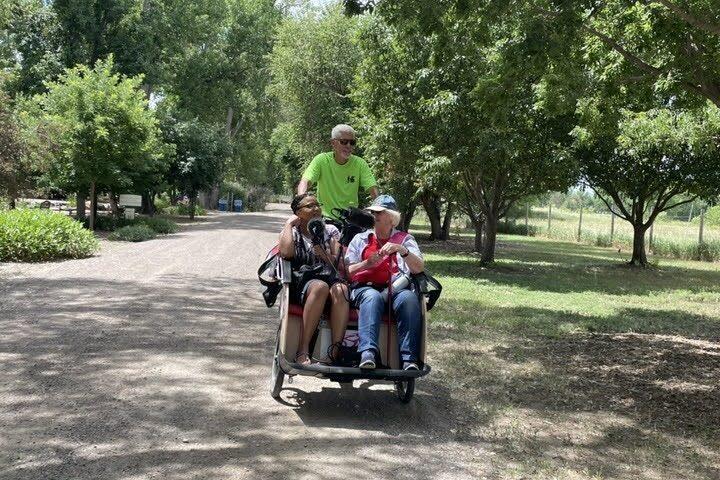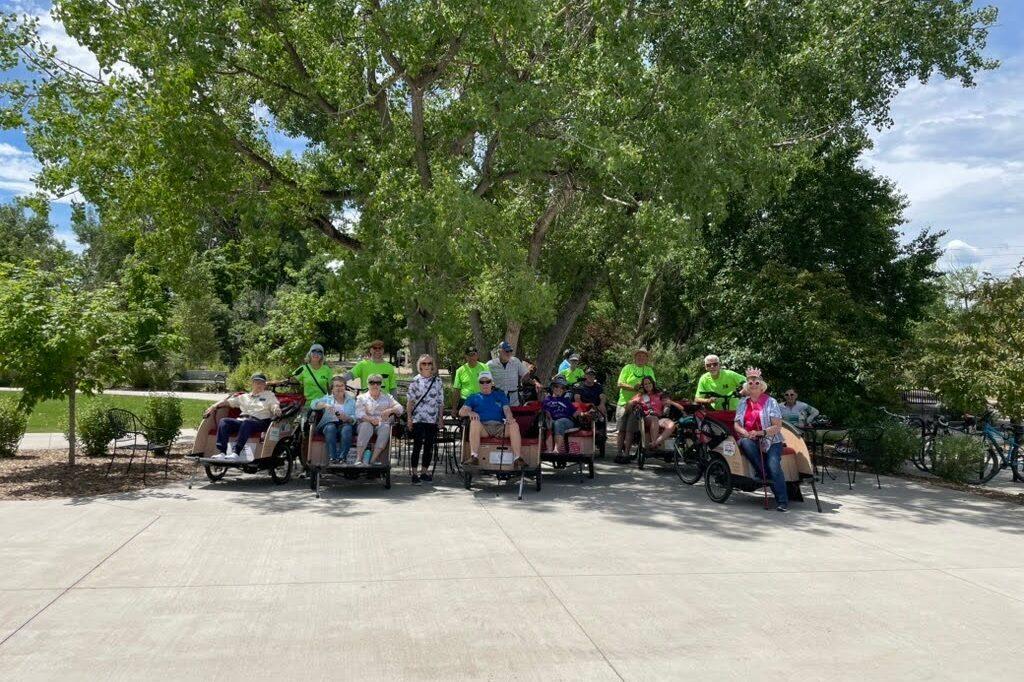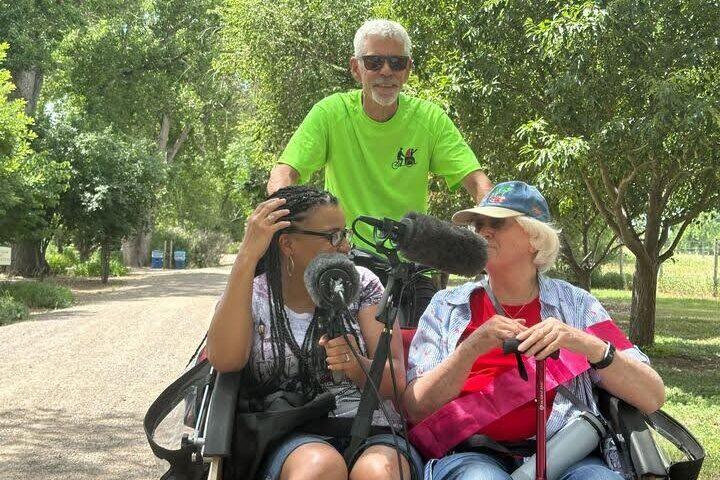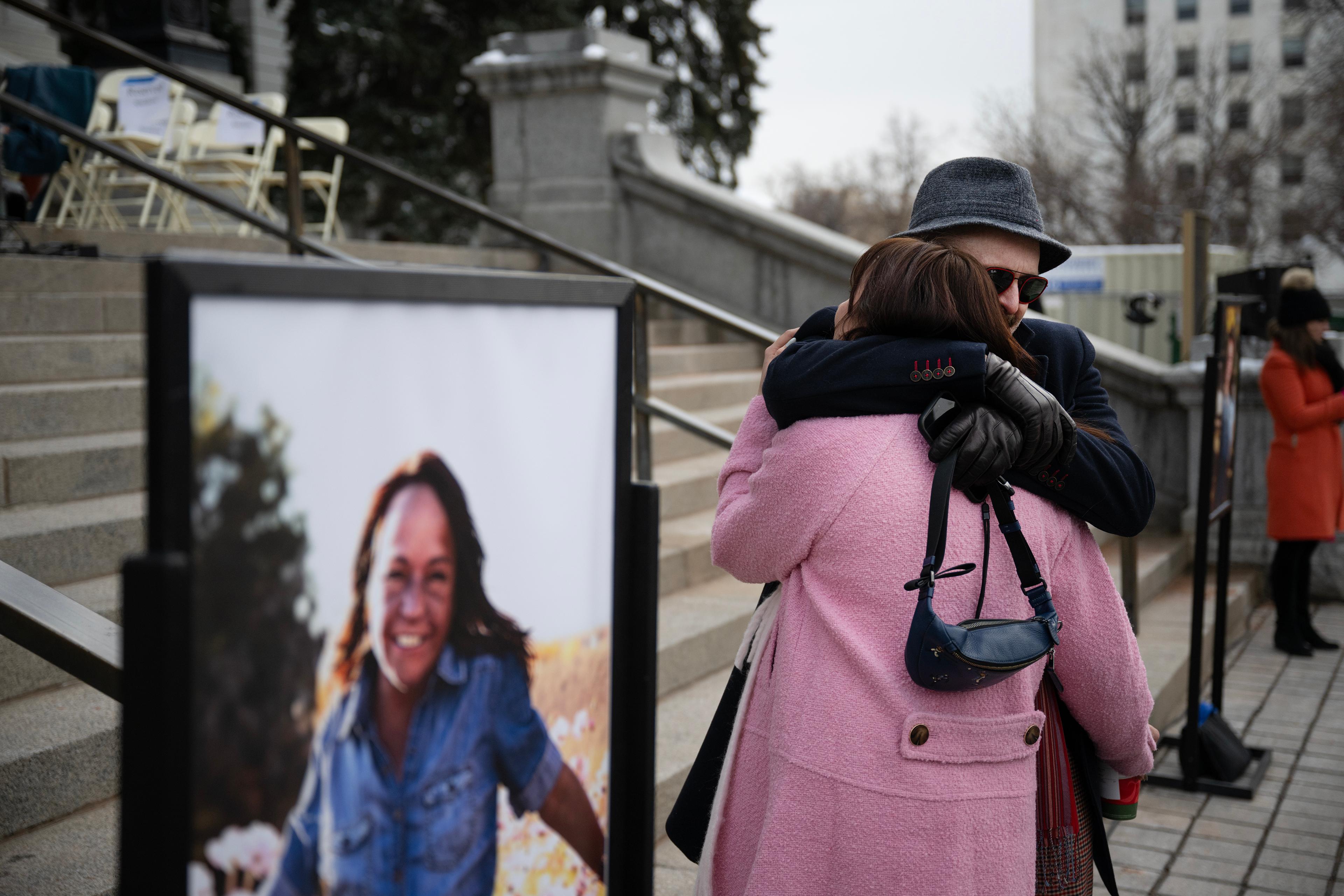
“Oh my gosh, I'm free again.”
That’s what Barb Lotze hears from older people as they glide through Littleton’s Hudson Gardens in “trishaws” — sturdy e-bikes with passenger seating up front — provided by the nonprofit she founded. She says it takes them back to their first time riding a bike.
“People laugh and they smile,” Lotze said. “That was the first time you had freedom. You didn't have to have Mom and Dad in the car. It was that wind in the hair.”
Wind in the hair is what Cycling Without Age Littleton promises to anyone who can’t pedal themselves. The movement started in Copenhagen and has expanded globally, with most chapters offering rides to older people.
When Lotze founded the Littleton chapter, she expanded the mission to include younger people with physical disabilities. Still, a large percentage of passengers in Littleton are older. The chapter has more than 100 volunteers and offered 2,400 rides last year, all free of charge.
The importance of combating Isolation
Colorado’s population is aging — the number of people in the state who are 65 and older will increase by 35 percent over the next decade. Research has shown that older people are prone to suffer from isolation, which can lead to poor health and cognitive decline.
But Aga Burzynska, director of the BRAiN Laboratory at Colorado State University, said that decline is not inevitable. She researches the older brain's ability to grow and learn — something called "plasticity.”
“I would say that we are finding that the brain is more plastic than we thought before,” she said. “We are on a very optimistic side here, that the brain is definitely changing and even an aging brain can induce this plasticity."
Her research has shown that exercise gives the older brain a boost. And Burzynska posited that getting out and being social helps.
“I think it's like this feedback loop, right? That if you are more motivated, if you're surrounded by people, if you try something new, it gives you that kick to keep going. So I think we need to make sure we find this in our lives,” she said.
| Whether you're aging yourself or caring for someone who is, what questions do you have? Email us at [email protected] or leave a voicemail at 303-871-9191 X 4480. |
Getting older people outdoors and trying something new
That's where Cycling Without Age Littleton comes in.
“Our whole goal is to break the isolation barrier and to get people out in nature enjoying wind in their hair and each other,” Lotze explains.
A recent outing started with a birthday cake for rider Bonnie Douglas, who turned 84.

Douglas was an equestrian when she was younger. She said she signs up for a ride whenever she can.
“It's a rejuvenation of the soul. The apartment that I live in, I don't have a balcony,” she explained. “And I can't walk the distances anymore. I can walk short distances, but it’s not getting out on the trail. And this just means the world to me to be able to get out and have this activity.”
Another passenger, Pat Allan, 88, has spotted deer, birds, and even eagles while out for a ride. Without the trishaw, she said, “I would never be able to see any of that, because when I am walking at my age, my eyes are glued to the ground. Because I cannot afford to fall.”
“So this is such freedom. It's a feeling of freedom,” she said.
Many volunteer 'pilots' are older themselves
Pedaling a trishaw is no small feat. The bike itself weighs 150 pounds. Add in the weight of the pilot and two passengers up front, and the cyclist could be steering more than 500 pounds. That’s a lot - even with the help of the electric motor. It’s why Lotze requires any volunteer to ride at least 50 miles a week on their own and master a 75-page manual, before taking the pilot training.

Still, more than two-thirds of their volunteers are over the age of 60 themselves. Pilot Roy Bash, 75, said he wasn’t in it for the exercise.
“It's the experience, it's the interaction with our passengers and the fun that we have in the conversations,“ he said as he pedaled through Hudson Gardens.
Lotze always tells passengers who thank her that the volunteers are the ones who are grateful.
“It's about a mutual service. You share your wisdom, you share your love, you share your personhood with us right now. Today, I can pedal a bike. Tomorrow, I might not be able to. So I have that gift. You have the gift of yourself,” she said. “It's a mutual win-win.”
This story is a part of Aging Matters, a series from Colorado Matters about the Centennial State's aging population. Read more stories here.









